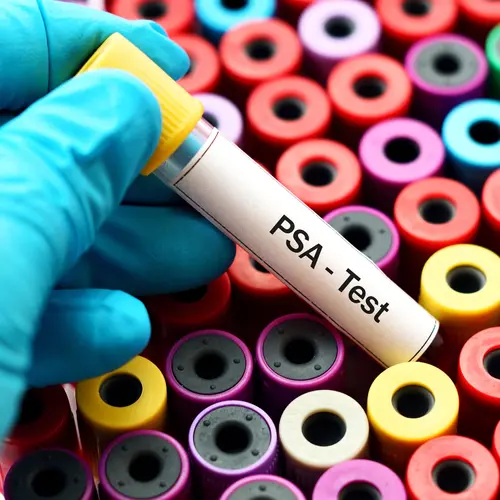Your doctor may suggest palliative treatments for your advanced prostate cancer, which may relieve symptoms and make you more comfortable.
Palliative care doesn't cure prostate cancer. Your doctor may recommend it along with your cancer-fighting drugs to ease problems like pain, fatigue, and anxiety.
Pain
If you hurt when your prostate cancer has spread to your bones, there are ways you can get relief.
Your doctor may recommend pain drugs, such as:
- Nonsteroidal anti-inflammatory drugs (NSAIDs) and acetaminophen for mild pain
- For severe pain, medicines like fentanyl patches, methadone, and oxycodone
- Antidepressants and anti-seizure drugs for nerve-related pain
Physical treatments you can try include:
- Massage
- Ice
- Heat packs
- Acupuncture
Your doctor may suggest chemotherapy or targeted radiation to help shrink a painful tumor. They may also recommend surgery to relieve pressure on your spine from a tumor.
Anxiety and Depression
It's natural to sometimes feel worried, depressed, or afraid. There are many ways to get help, such as:
- Talk with a therapist or counselor
- Join a support group
- Take anxiety and antidepressant medications
Fatigue
Many things can make you feel tired when you have advanced prostate cancer. You might not feel like eating, which can make you feel weak. Pain, depression, and many of the drugs you take can also lead to fatigue.
Some ways to fight it are:
- Supplement shakes to boost your nutrition
- Stimulant drugs, such as methylphenidate, if your doctor prescribes them
- Planning your activities for times you think you'll have energy for them
- Steps to treat nausea and other problems that keep you from eating
- Exercise, can help with your energy level
- A cane or wheelchair to help you move around more easily
Bladder Problems
Surgery and radiation for prostate cancer might make it hard for you to hold your urine. Try some of these tips:
- Do Kegel exercises to strengthen your lower pelvic muscles. A physical therapist can teach you how to do these simple moves.
- Visit the restroom on a regular schedule.
- Drink less fluid, especially at night.
- Stay away from caffeine and alcohol.
- Ask your doctor about surgery that may help your urinary tract hold fluid better.
Prostate cancer might also block the flow of urine from your bladder. A catheter -- a tube that your doctor puts into your bladder to let urine drain out -- can fix this problem. So can a surgery called TURP, in which a doctor removes tissue from the prostate through the penis.
Trouble Having Sex
Prostate cancer treatments such as surgery and radiation can cause erectile dysfunction or make it worse. So can treatments that lower your testosterone. Some ways to tackle this are:
- Prescription drugs such as sildenafil (Viagra), tadalafil (Cialis), or vardenafil (Levitra)
- Penile injection therapy or vacuum erection devices Discuss with your doctor which treatment options may be best for you.
You can also get counseling to help you find ways to stay connected with your partner.
Hot Flashes
Cancer treatments that lower your testosterone can cause hot flashes, a quick feeling of heat.
Some antidepressants and hormone medications can help treat these. You can also turn on a fan or wear lighter clothing.
Caregiving Issues
Health care professionals can help arrange home nursing care or hospice care for people with advanced prostate cancer, if needed, so their loved ones have fewer caregiving duties. This is a form of palliative care that can help families enjoy more of their time together.

